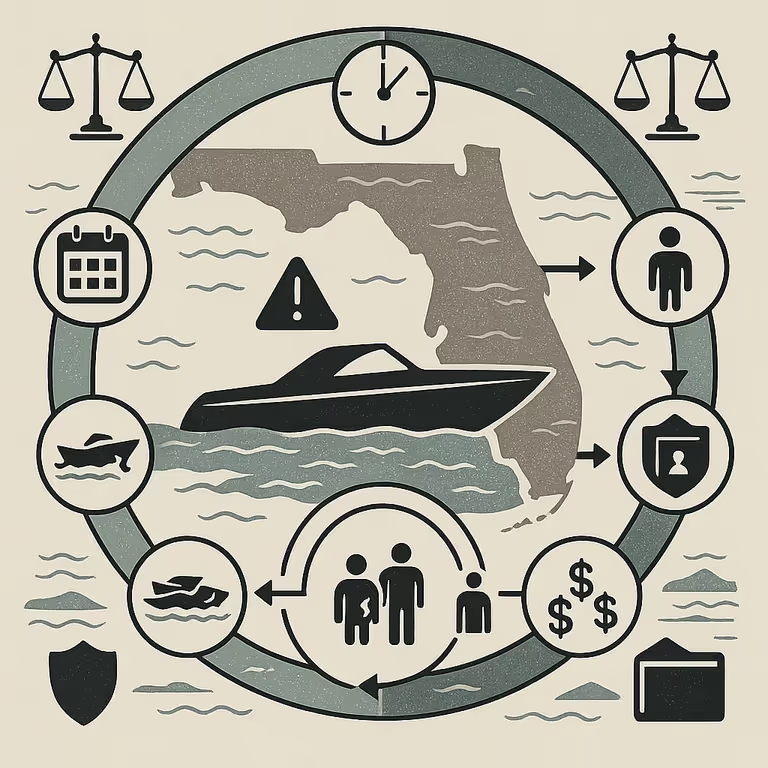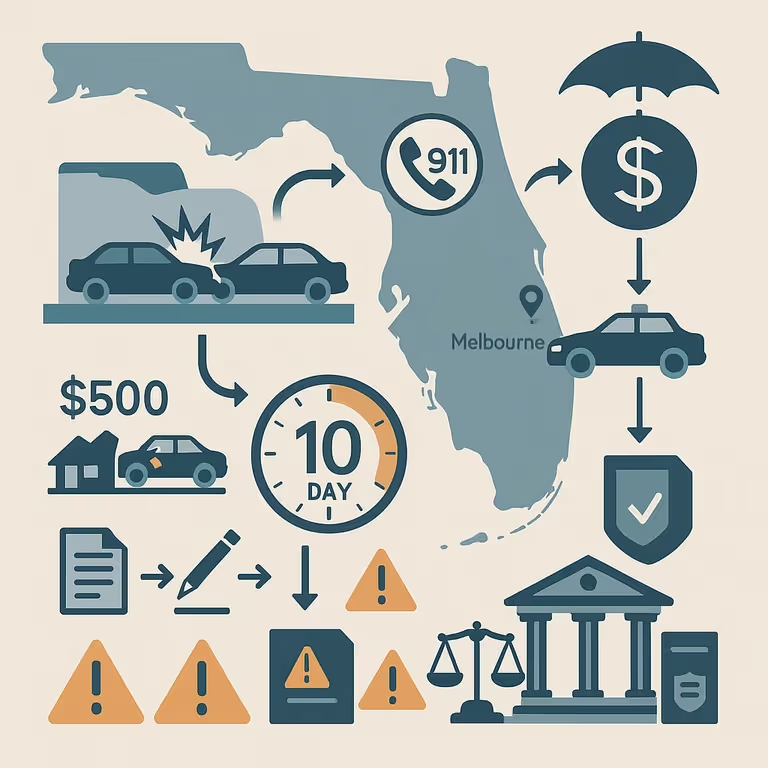What Are Your Odds of Dying in a Car Crash? A Statistical Analysis for Florida Drivers
Learn the true odds of dying in car crashes, Florida's above-average fatality rates, and how new 2023 laws protect accident victims in Brevard County.
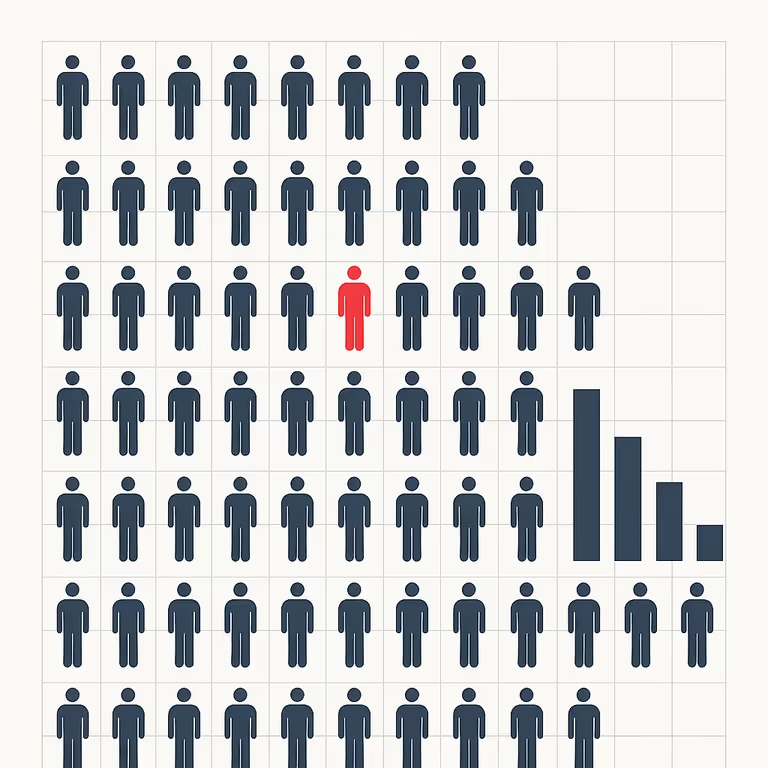
- Your lifetime odds of dying in a car crash are 1 in 93, but personal factors you control significantly impact this risk.
- Florida's fatality rate of 1.55 per 100M miles exceeds the national average, making defensive driving crucial for state residents.
- New 2023 Florida laws shortened lawsuit filing time to 2 years and changed fault rules, requiring immediate legal consultation after accidents.
Worried About Your Injury Case? We'll Review It - Free!
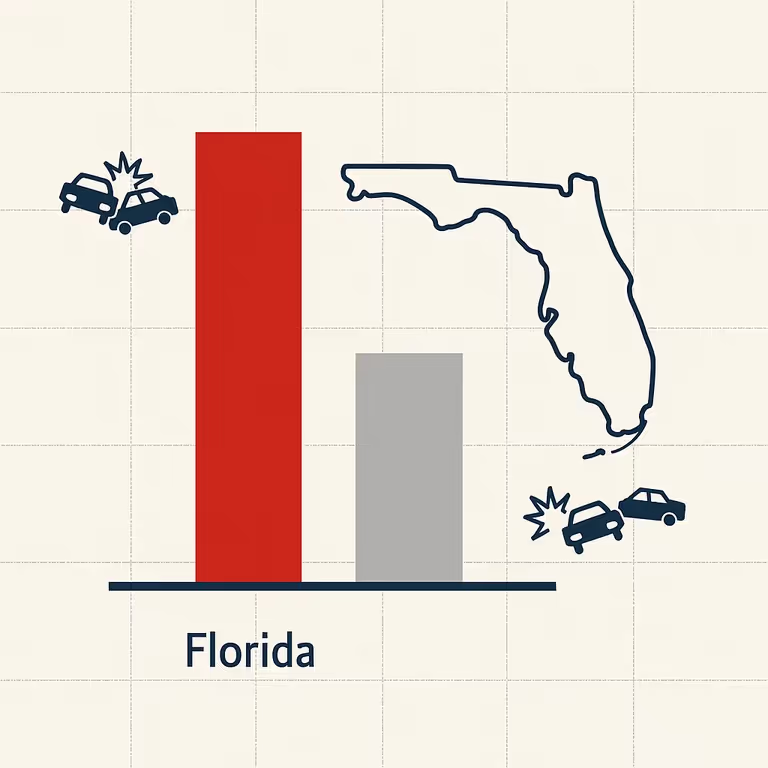

Understanding Your Real Car Crash Death Risk
Most people have a skewed understanding of their actual risk of dying in a car crash. Some worry constantly about every drive to the grocery store, while others speed down I-95 without a second thought about the danger. The reality falls somewhere in between these extremes, and understanding the actual numbers can help you make better decisions about your safety and legal protection.
The National Safety Council estimates show that over a lifetime, Americans have approximately a 1 in 93 chance of dying in a motor vehicle accident. To put this in perspective, you're statistically more likely to die in a car crash than from many other risks people commonly worry about, yet far less likely than from heart disease or cancer.
Recent national data provides some encouraging trends. The National Safety Council estimates that 44,680 people died in preventable traffic crashes in the United States during 2024, representing a slight decrease of less than 1% compared to 2023. Even more promising, NHTSA's preliminary data shows that for 2024, the fatality rate decreased to 1.20 fatalities per 100 million vehicle miles traveled, down from 1.26 in 2023. This represents the lowest fatality rate since 2019, suggesting that improved safety technology and awareness campaigns are making a real difference.
However, statistics only tell part of the story. In our nearly four decades of representing car accident victims in Melbourne and throughout Brevard County, we've seen firsthand how these numbers translate to real families facing devastating losses and life-changing injuries. Understanding both the risks and your legal rights after an accident is crucial for every Florida driver.
If you've been involved in a car accident, consulting with experienced Melbourne car accident lawyers can help you understand your specific situation and protect your rights under Florida's recently changed laws.
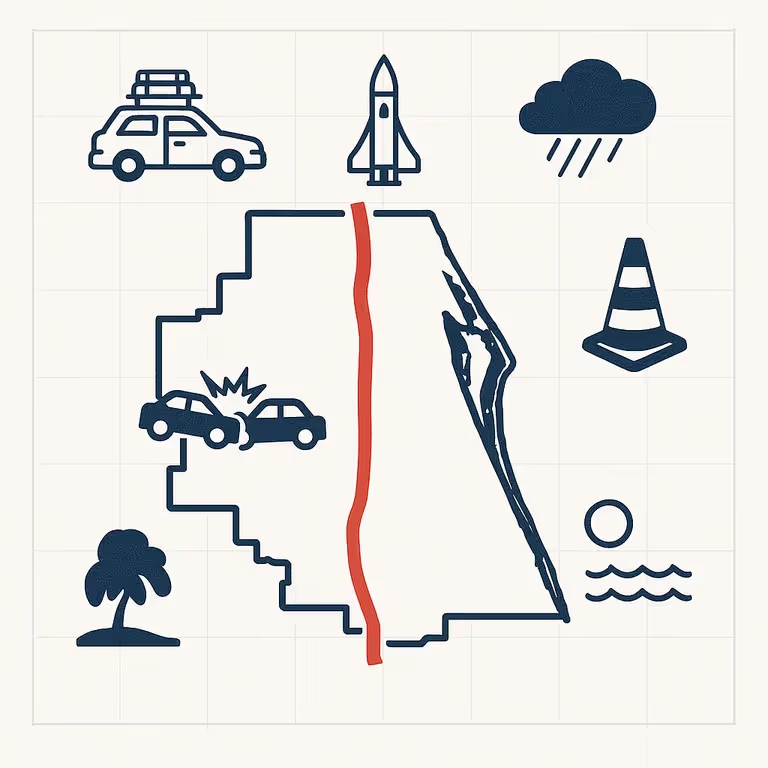
Florida's Above-Average Fatality Rates and Risk Factors
While national statistics provide a baseline understanding, Florida presents unique challenges that every driver in our state should understand. According to the Insurance Institute for Highway Safety's data, Florida had 3,530 total motor vehicle deaths with a fatality rate of 1.55 per 100 million vehicle miles traveled, which is notably above the national average.
The numbers for 2024 paint a sobering picture of road safety in our state. Recent Florida data shows that in 2024, there have been 2,360 car accidents resulting in death in Florida, with 2,524 total fatalities. This means that more than seven people die every day on Florida's roads.
One particularly concerning trend involves distracted driving. Preliminary data indicates that nearly 300 people died and over 2,200 people suffered serious bodily injuries due to distracted driving in Florida during 2024. With our state's heavy tourist traffic and constant construction, distracted driving poses an especially dangerous combination of factors.
Your individual risk depends on numerous factors you can control. Age plays a significant role, with drivers under 25 and over 75 facing higher risks. The type of vehicle you drive matters too—larger vehicles like SUVs generally provide better protection than smaller cars, while motorcyclists face dramatically higher fatality rates. Seat belt use remains one of the most effective safety measures, reducing the risk of death for front-seat passengers by 45%.
Time of day and week also affect your odds. Fatal crashes occur most frequently during evening hours and on weekends, often involving alcohol or fatigue. Weather conditions, road maintenance, and even the specific routes you choose can influence your personal risk profile.
Understanding these factors isn't about creating fear—it's about making informed decisions. Whether you're dealing with the aftermath of an accident involving distracted driving or want to understand your legal options, consulting with Florida distracted driver accident lawyers can provide valuable guidance tailored to your specific situation.
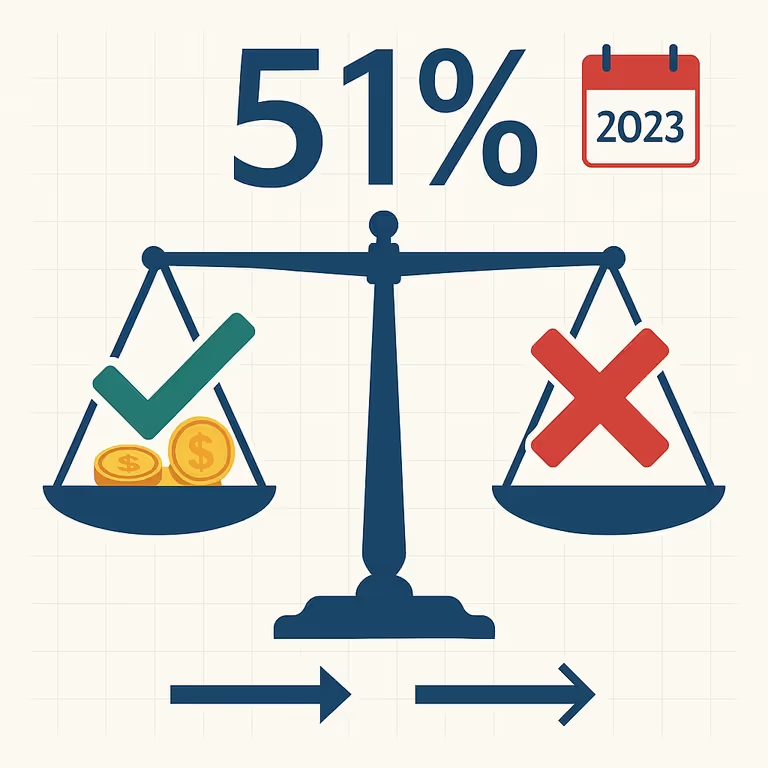
Melbourne and Brevard County Specific Challenges
Living in Melbourne and Brevard County means navigating some unique traffic challenges that directly impact your crash risk. Brevard County experienced 8,394 total crashes in 2023 according to recent data analysis, making it essential for local residents to understand their specific risk environment.
Brevard specifically recorded 88 fatal car accidents, and 4,199 car crashes according to FLHSMV's 2024 data. These numbers reflect the reality of sharing our roads with everything from daily commuters to tourists heading to Kennedy Space Center, plus the constant flow of traffic along the I-95 corridor.
Our location presents several risk factors that don't show up in general statistics. The I-95 corridor through Brevard County sees heavy truck traffic, tourist drivers unfamiliar with local roads, and frequent construction zones—all contributing to higher accident rates. During tourist season, our population effectively doubles, bringing drivers who may not understand local traffic patterns or road conditions.
Weather also plays a unique role in our area. Sudden afternoon thunderstorms can create dangerous driving conditions in minutes, while morning fog near the coast reduces visibility. Our proximity to the ocean means dealing with both beach traffic and occasional evacuations during hurricane season.
After nearly four decades of practicing law in Brevard County, we've developed an intimate understanding of how these local factors play out in real accidents. We know which intersections see the most crashes, how weather patterns affect accident rates, and how local emergency response times can impact the severity of injuries. This local knowledge proves invaluable when building a case or negotiating with insurance companies who may not understand the specific circumstances Brevard County drivers face.
The I-95 corridor through Melbourne presents particular challenges, with high-speed traffic, frequent lane changes, and the mixing of local and long-distance travelers. If you've been involved in an accident on this busy highway, specialized I-95 accident lawyers in Melbourne can help you navigate both the legal complexities and the unique factors that contributed to your crash.

How Florida's 2023 Legal Changes Affect Your Rights
Surviving a car crash is just the beginning of your journey toward recovery. Understanding your legal rights—especially with the significant changes to Florida law that took effect in 2023—can make the difference between adequate compensation and financial devastation.
Florida operates under a modified comparative negligence system as of March 24, 2023. This fundamental change affects every car accident case in our state. Under this system, if you are partly at fault for an accident, your potential compensation will be reduced by your percentage of fault, but you can only recover damages if you are 50% or less responsible for the accident.
The critical threshold to understand is the 51% rule. If you are found to be 51% or more at fault, you cannot recover any compensation from other parties involved in the accident. This represents a dramatic shift from the previous system and means that fault determination has become absolutely crucial to your recovery.
Consider this example: if you're injured in an accident and a jury determines you were 40% at fault while the other driver was 60% at fault, you can still recover compensation—but it will be reduced by 40%. However, if that same jury finds you 51% at fault, you receive nothing, regardless of the severity of your injuries or the other driver's negligent actions.
This change makes early legal consultation more important than ever. Insurance companies understand these new rules and will aggressively try to shift blame onto you to minimize or eliminate their payout obligations. Having experienced legal representation from the start helps protect you from tactics designed to inflate your percentage of fault.
Our free case evaluations provide a comprehensive review of your accident circumstances, helping you understand how fault might be determined and what evidence needs to be preserved. We examine police reports, witness statements, physical evidence, and expert reconstructions to build the strongest possible case for minimizing your fault percentage.
The complexity of these new laws and their impact on your recovery make professional legal guidance essential. Experienced personal injury lawyers in Melbourne can help you understand how these changes specifically affect your case and develop strategies to protect your rights under the new legal landscape.

The Critical 2-Year Filing Deadline You Must Know
Time has become one of the most critical factors in Florida personal injury cases, and unfortunately, many accident victims don't realize how dramatically the law changed in 2023. Florida Statute 95.11 now requires that personal injury claims based on negligence must be filed within 2 years from the date of the accident, reduced from the previous 4-year deadline as of March 24, 2023.
This change cut your filing time in half, creating urgent pressure to act quickly after an accident. The practical implications are significant: evidence disappears, witnesses forget details, and insurance companies become less cooperative as time passes. What once felt like adequate time to recover physically and emotionally before pursuing legal action has been dramatically compressed.
Missing this deadline doesn't just mean missed opportunities—it typically means complete loss of your right to seek compensation through the courts. Insurance companies are well aware of this deadline and may delay negotiations, hoping you'll miss the filing cutoff and lose all leverage.
Florida House Bill 837 brought these changes as part of sweeping tort reform that fundamentally altered the personal injury landscape. Beyond the shortened filing deadline, these reforms changed fault rules and imposed new restrictions on how medical expenses are calculated and presented in court. The cumulative effect makes early legal consultation not just advisable, but essential for protecting your rights.
The new time pressure means that what you do in the days and weeks immediately following your accident can determine the success of any future legal claim. Evidence needs to be preserved, witnesses interviewed, medical documentation compiled, and legal strategies developed—all within a much shorter timeframe than before.
Our approach recognizes this time sensitivity. During your free case evaluation, we immediately begin preserving crucial evidence and building your case, even while you focus on medical recovery. We understand that the 2-year deadline isn't just a legal technicality—it's a deadline that can make or break your family's financial recovery.
Don't wait to understand your rights and options. The changes to Florida law mean that acting quickly isn't just advantageous—it's essential. For immediate guidance on protecting your rights and understanding the steps you should take after an accident, review our comprehensive guide: What should I do after a car accident?
Your Next Steps: FAQs and Legal Protection
Understanding car crash statistics empowers you to make safer driving decisions, but knowing your legal rights protects you when prevention isn't enough. The combination of Florida's unique risk factors and recent legal changes means that every driver should be prepared for the unexpected.
How can I reduce my odds of being in a fatal car accident?
Focus on the factors you can control. Always wear your seat belt—it reduces your risk of death by 45%. Avoid distracted driving entirely, including hands-free phone calls in heavy traffic. Maintain your vehicle properly, especially tires and brakes. Drive defensively, especially during high-risk periods like evening hours and weekends. In Florida's unique environment, pay special attention to sudden weather changes and tourist traffic patterns.
What should I do immediately after a car accident in Florida?
Ensure everyone's safety first, then call 911 even for minor accidents. Document everything—take photos of vehicles, the scene, and visible injuries. Get contact information from all drivers, passengers, and witnesses. Seek medical attention even if you feel fine; adrenaline can mask serious injuries. Avoid discussing fault or admitting responsibility. Contact legal counsel before giving detailed statements to insurance companies.
How does Florida's new comparative negligence law affect my case?
Under the new modified comparative negligence system, your compensation is reduced by your percentage of fault, but only if you're 50% or less at fault. If you're found 51% or more at fault, you receive no compensation. This makes fault determination absolutely critical and gives insurance companies strong incentives to shift blame onto you.
What is included in a free case evaluation?
Our free case evaluation provides a comprehensive review of your accident circumstances, analysis of potential fault issues under Florida's new laws, assessment of your damages and potential compensation, explanation of the legal process and timeline, and immediate steps to protect your rights. You'll receive honest answers about your case's strengths and challenges, with no obligation to proceed.
How long do I have to file a lawsuit after a car accident in Florida?
You have just 2 years from the accident date to file a lawsuit, reduced from 4 years as of March 2023. This deadline is absolute—missing it typically means losing your right to seek compensation through the courts. Early legal consultation is essential for preserving evidence and building a strong case within this shortened timeframe.
What if I'm partially at fault for my accident?
You may still recover compensation if you're 50% or less at fault, but your award will be reduced by your fault percentage. For example, if you're 30% at fault and awarded $100,000, you'd receive $70,000. However, if you're 51% or more at fault, you receive nothing. This makes skilled legal representation crucial for minimizing your fault percentage.
While statistics provide context for understanding risk, they cannot predict or prevent individual accidents. What matters most is making informed decisions about safety and being prepared to protect your rights if the unexpected occurs. Florida's recent legal changes have made the stakes higher and the timelines shorter, emphasizing the importance of understanding both your risks as a driver and your rights as an accident victim.
If you or a loved one has been involved in a car accident in Melbourne, Brevard County, or anywhere in Central Florida, don't let time work against you. Contact Doug Beam and our experienced team for a comprehensive free case evaluation. With nearly four decades of experience handling thousands of cases and over $1 billion in verdicts and settlements, we understand both the statistical realities of car crashes and the practical steps necessary to protect your rights under Florida's new legal landscape. Call us at (321) 723-6591 to schedule your free consultation and take the first step toward protecting your family's financial future.
This article provides general information and is not a substitute for legal advice. Laws can change, and the details of your situation matter. For personalized guidance, please contact a qualified Florida personal injury attorney.
Not Sure What To Do Next? We Can Help – Fast & Free.
Worried About Your Injury Case?
We'll Review It - Free
Don’t miss an article
Florida law, local insights, and the occasional dog pic.
Delivered straight to your inbox.
More articles
Browse all articlesFree Case Review
Get a complimentary review of your case

.webp)
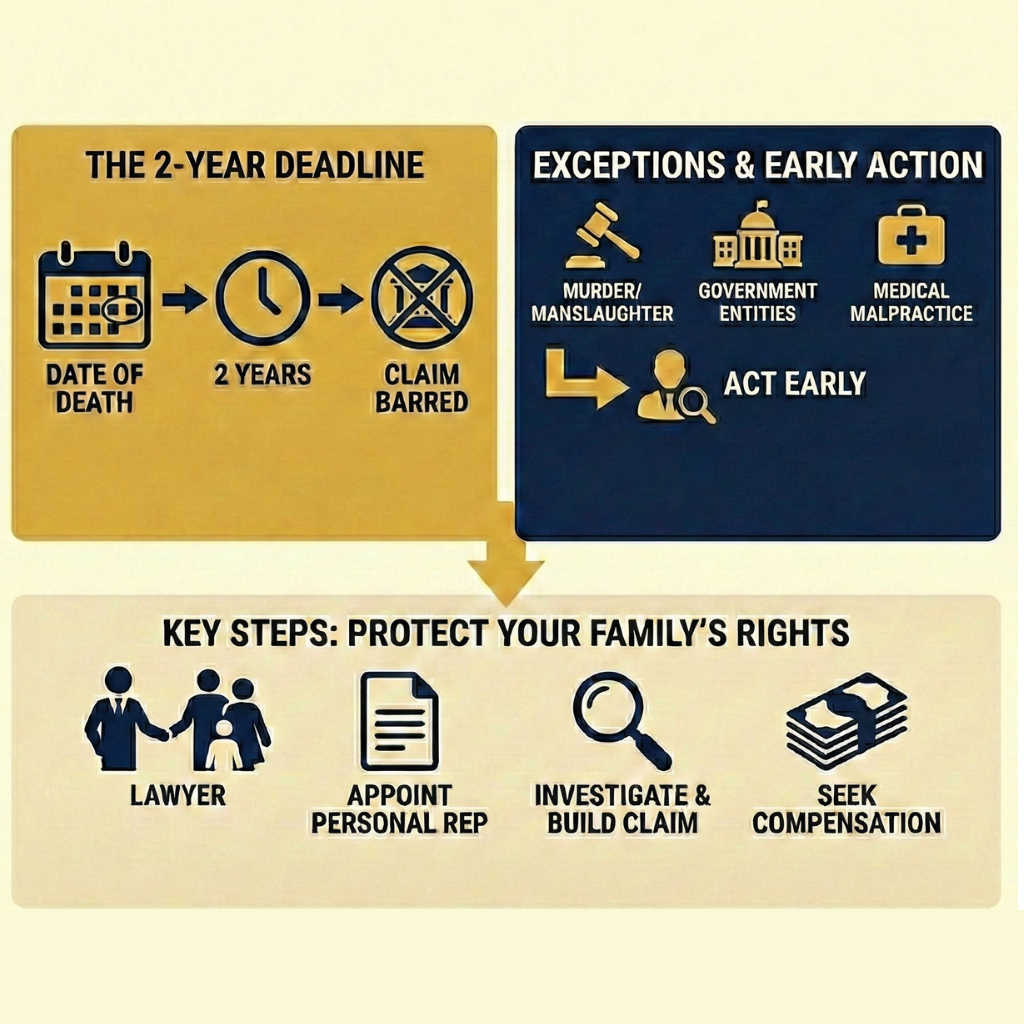

.png)
.png)
.png)
.png)

